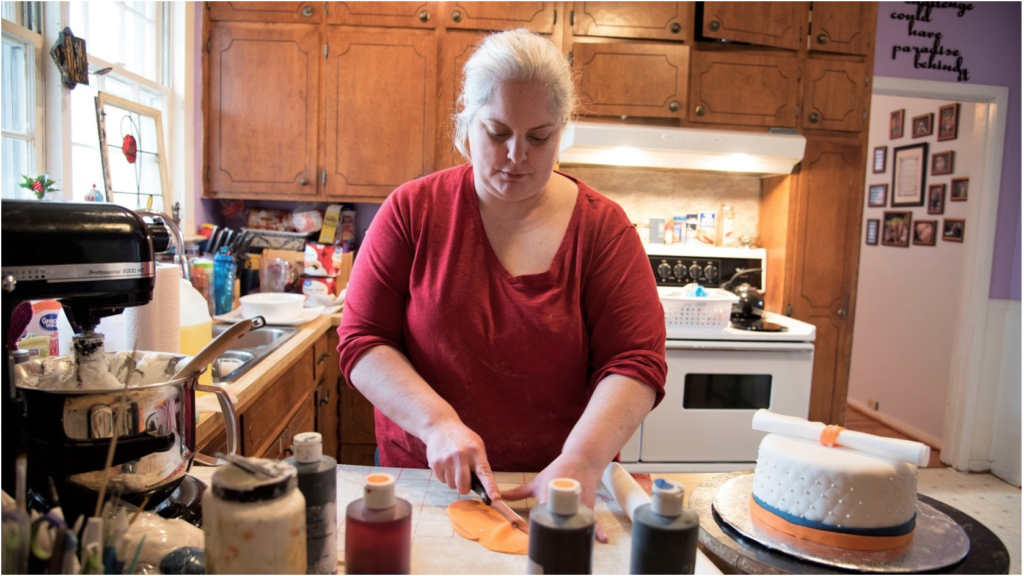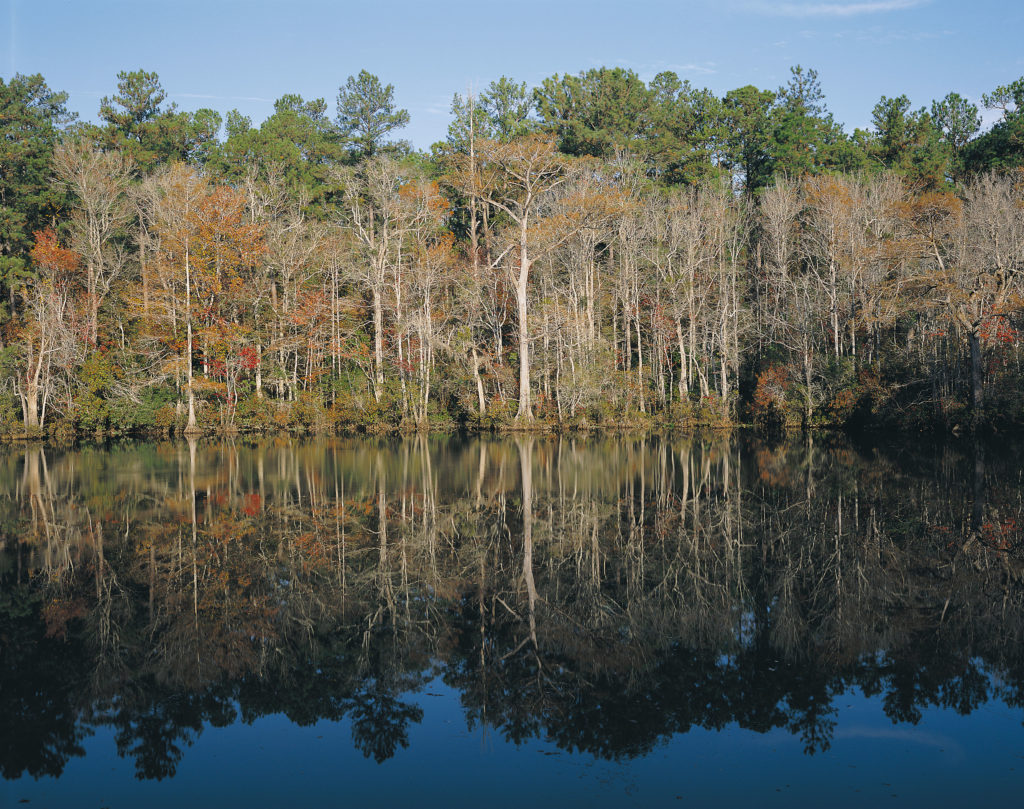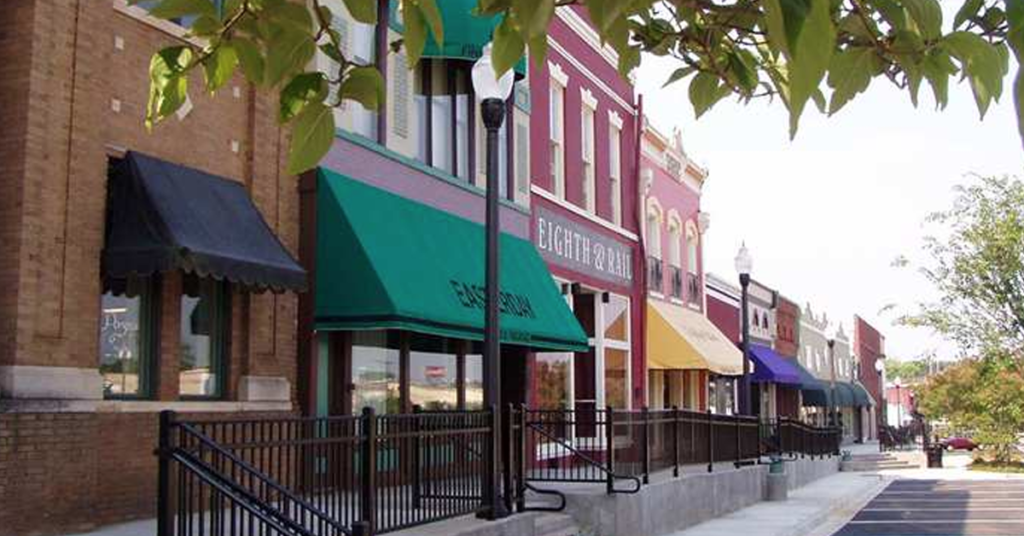Google to offer digital skills workshops in three Alabama cities

Google says it will offer free digital skills workshops in Alabama. AL.com reports Google announced Monday it’s bringing its “Grow with Google” tour to three cities starting with Birmingham on Aug. 6. The other two workshops are Aug. 8 in Opelika and Aug. 10 in Scottsboro. Google’s head of community engagement Erica Swanson says the workshops and one-on-one coaching are designed to help job seekers and small businesses. She says Google sees the training as an extension of its existing presence in Alabama. The Internet company began engaging with some public libraries after announcing that it was building a $600 million data center in Jackson County. Google says roughly 11,000 Alabama businesses and nonprofits generated more than $700 million in economic activity in 2017 using its search and advertising tools. Republished with the permission of the Associated Press.
Opelika mother turns baking hobby into serious business

A cake-decorating hobby gone awry. Mandi Buckalew said that’s how her studio, Cakeapotamus LLC, got its start. She creates custom cakes for weddings, birthday parties and corporate and community events, specializing in odd, unusual and often geeky designs. Buckalew, who was a certified special-education teacher at a middle school in those days, said baking started as an outlet for her. “I would come home and bake at night to relieve stress,” Buckalew recalls. “Then, I began baking for other people, and it just exploded.” Buckalew began dreaming of opening a bakery after retirement. When she was diagnosed with thyroid cancer several years ago, she thought, “Why wait?” After beating cancer, Buckalew opened her brick-and-mortar bakery in Opelika in 2013, whimsically calling it Cakeapotamus as a nod to her first career as an animal behaviorist. Because her custom-designed cakes have become so popular, she closed her store earlier this year and now focuses solely on special orders. Buckalew bakes cakes and decorates them in her fully equipped private studio. Buckalew will take on almost any challenge. She said her favorite cake was one she designed for a groom who wanted it to look exactly like his old lucky Auburn hat. “I was so proud of that cake,” said Buckalew, who used the actual hat as her guide. “It had the scuffs in the right places, and the tears in the right places.” Another of Buckalew’s favorites was the first cake she designed for Icing Smiles, a nonprofit organization that provides birthday cakes for critically ill children and their siblings. The organization planned to surprise a little boy who was a huge fan of “Star Wars” and Legos. With that in mind, Buckalew sculpted a Lego Millennium Falcon cake with working lights. She brought Darth Vader and a Storm Trooper to the bakery to present the cake to the boy to make his “big day” even more special. Since then, volunteering her talents to help bring happiness to kids has become a passion for Buckalew. In addition to providing cakes for Icing Smiles, her creations have helped make dreams come true for children through Make a Wish Alabama. “Having my own business allows me time to do these volunteer things,” said Buckalew. “I appreciate how lucky I am that I have the opportunity to set up a wish reveal, or take birthday cake to children.” Buckalew has been a “serious” baker for eight years. When she was in the second grade, she made a Coca-Cola cake for a Girl Scouts competition and then didn’t bake again until her daughter’s first birthday. Not long afterward, Buckalew became interested in the art of cake decorating, with the idea of creating “cool” birthday cakes for her children (now ages 9 and 11). Since then, Buckalew has attended classes led by experts from around the world and has traveled as far as New Mexico for training. She often visits cake shows to promote her business, teach cake decorating classes and learn the latest tips and tricks of the trade. She is helping plan the Ultimate Sugar Show, the Southeast’s largest cake and sugar art show, next fall. “In the (19)70s, ‘80s and ‘90s, there was only the Wilton Cake Decorating classes,” Buckalew said. “But since the Food Network and The Learning Channel started airing cake shows, the industry has evolved. People have become more educated and are asking for more fun things they can do with their cakes.” Although Buckalew has created some intricately designed cakes since opening her business, that’s not the hardest part of the job. The biggest challenge, she said, is delivering wedding cakes. “It’s terrifying,” said Buckalew. “It can be very stressful because a couple only gets one wedding cake. It’s not like a birthday cake in that if something goes wrong, you will get another one next year. The wedding cake is the one sweet bite with which everyone at the wedding toasts the new couple.” Buckalew said the types of requests she receives vary, but her most popular cakes are those centered on movies and college football. “My favorite thing is when I get a really strange or weird request that has never been done before, and I figure out how to do it so it’s food-safe and edible,” said Buckalew. She has spent up to 30 hours perfecting detailed decorations on a cake. Buckalew said the best part of owning a home business is that it allows her to spend more time with her son and daughter. “I opened my home business because it was getting too big, and I was starting to miss important events,” said Buckalew. “I still miss having a storefront and plan to re-open the shop when the kids are older. Meanwhile, I work with several businesses, so my products are still available to the public at places around town.” For more information or to place a request, visit https://cakeapotamus.wordpress.com/. Republished with permission from the AlabamaNewsCenter.
Opelika-native, former Miss America calls for resignations over CEO email scandal

Former beauty queen and Opelika-native Mallory Hagan was one of the Miss America pageant winners to be targeted by the organization’s CEO and the lead writer of the pageant’s telecast in emails recently released by the Huffington Post. Hagan, who won the Miss America title in 2013 for the state of New York, told NBC’s Today Show on Friday that she was not surprised by the emails and feltf “validated” by them. “When I first read the emails in the article, I wasn’t shocked but I was validated,” she said. “For the longest time, I’d try to explain to people around me this is happening, or these things are being said. And (now I) have the ability to look on paper and say, ‘See, I told you.’” Hagan is referring to the emails in which CEO Sam Haskell described her as “huge,” “a piece of trash,” and “gross” in an email to lead writer Lewis Friedman, where he made comments about her weight and sex life. The Miss America Organization suspended Haskell on Friday, less than 24 hours after leaked emails surfaced. They said its board “will be conducting an in-depth investigation into alleged inappropriate communications and the nature in which they were obtained.” “My mistake is a mistake of words,” Haskell wrote in a statement Friday night, shortly after the board suspended him indefinitely. “Much of what was reported is dishonest, deceptive, and despicable. The story is so unkind and untrue, and hurts me, my family, and the stewardship of this nonprofit. Those who know my heart know that this is not indicative of my character, nor is it indicative of my business acumen.” Hagan was 2007 graduate of Opelika High School and attended Auburn University.
Opelika fallen soldier Dusty Hiller featured in new National Geographic mini-series

He died serving his country, now his story is being shared with America. Thirteen years ago, the First Cavalry Division deployed from Fort Hood, Texas. They were supposed to be on a peacekeeping mission, but four days later, an Iraqi militia ambushed one of their platoons. Eight Americans, including Army Spc. Stephen “Dusty” Hiller, 25, of Opelika, Ala. died that day in Sadr City, Baghdad, Iraq. Now, Dusty’s life is being remembered in a National Geographic television network mini-series called The Long Road Home. Based on the 2007 book by ABC News journalist Martha Raddatz, the mini-series chronicles the ferocious 8-hour long ambush on the First Cavalry Division, which later came to be known as ‘Black Sunday,’ and the soldiers’ heroic fight for survival. It also tells the story of the their families who waited back home for them. “Being in the military was Dusty’s dream,” Dusty’s mother, Beth Hiller said in a statement. “It was definitely hard reading the book in 2007 because it was like reliving 2004. I was mad, angry and sad all at one time.” Prior to losing his life, Dusty has just learned his wife Lesley was pregnant. Raddatz details what happened following the day after the attack, in detail as gut-wrenching as any battle story. “She opened the door and saw an army chaplain. Another officer in uniform was with him. There wasn’t a chance for either visitor to say a word. ” ‘No!’ Lesley yelled. She was frantic, panic-stricken. ‘You all got the wrong house!’ “She slammed the door. “The officers stayed outside and began calling her name softly. “After a moment she opened the door a crack. ” ‘Are you Mrs. Hiller?’ one of them asked. “She shook her head. ‘You have the wrong house,’ she insisted. ” ‘Is your name Lesley?’ ” ‘No,’ she said again. ‘You got the wrong house!’ Then she started to scream.” The officers followed Lesley Hiller into the house. She knew, of course, why they were there. She understood. It didn’t matter how carefully or humanely the military tried to conduct such visits; in the end the was the same. The series premiered last week, and seven more episodes will continue to air on Tuesday nights at 8 p.m. CT.
OPS broadband may soon move beyond the Gig City of Opelika

When Opelika, Ala. found its residents at a economic and educational disadvantage not having full-access to high speed internet and cable, the city tried to attract service providers to fill their needs, but ultimately failed. That’s when the city decided to fill the void itself and built a municipal fiber optic network, providing 1 gigabit per second internet speed to Opelika Power Service (OPS) customers. Branding itself “Alabama’s first Gig City,” Opelika invested about $43 million in the network offering customers “triple play” — telephone, television and Internet. But despite the 425 miles of fiber running throughout the city the service begins and ends in Opelika. At least one Alabama Senator hopes to change that. For the third year in a row, Auburn-Republican state Sen. Tom Whatley has introduced legislation in the state Senate that would allow OPS to expand its high speed internet service outside of Opelika to constituents in into underserved neighborhoods in North and South Auburn. Under current law, municipal service providers like OPS are unable to expand beyond their municipal jurisdiction. Whatley’s bills would remove coverage area restrictions for public providers of municipal telecommunication services and allow those providers more leeway in providing broadband service to rural areas of Alabama. Providers are already supplying these areas with cable and phone service, but Whatley’s bill would open up avenues for providing high speed internet service. For Whatley, the decision to introduce the bills is all about his constituents. “I 100-percent support private industry to supply these services, but private companies have made business decisions not to serve parts of my district,” Whatley told Alabama Today. “When that happens, I’m not going to tell those areas that they need to accept it. They need to do what they need to do to get serviced. The Opelika Internet Bill would allow that.” Whatley continued, “Right now, parts of my district are at an educational and economic disadvantage because they don’t have access to high speed internet. Companies aren’t as interested in doing business in the area because there’s no digital footprint. And when you look at education, it’s not fair for kids who need the internet to do homework and their parents are having to take them to library every night or spend data overages on their cellphones to allow kids to do research.” Alabama Republicans and Gov. Robert Bentley have made it a priority to provide Alabama’s rural areas with high-speed Internet service, a move they believe will make great strides in lowering the unemployment rate and, thereby, the state’s poverty rate. Currently, only 44 percent of Alabamians outside of major cities have access to broadband Internet service, according to the Federal Communications Commission. Whatley’s bill is intended improve Internet access by creating new providers, which will directly correlate to increased economic development. SB 228, along with two other telecommunications bills Whatley has introduced SB 151 and SB 192, will go before the Alabama Senate Transportation and Energy Committee on Wednesday, April 5.
Steve Flowers: BP oil spill money, a missed opportunity for Alabama’s natural resources

We have unbelievable natural resources in Alabama starting with the Tennessee Valley and transcending to the beautiful white sands at Gulf Shores. Many of our natural resources have been exploited over the years. The prime example would be the exploitation of our rich vaults of iron ore discovered in Jefferson County in the early 20th Century. It created the city of Birmingham, the Steel City of the South. U.S. Steel swept in and bought the entire region and used cheap labor in the mines and steel mills and kept poor whites and blacks in poverty wages and shantytowns. They owed their soul to the company store. Finally, they organized into labor unions. The United Steel Workers Union Local in Birmingham became the largest in the nation. Alabama also became the most unionized state in the south. The TVA workers and Reynolds Aluminum workers in the Tennessee Valley were all unionized. The tire workers in Gadsden, Opelika, and Tuscaloosa were unionized. The federal workers around Ft. Rucker in the Wiregrass were union. The largest employer in Mobile was the docks. The dockworkers were unionized. When you combine these locales with the steelworkers in Birmingham, we were a pretty unionized state. In the course of our recent history, we have been more prudent with our natural resources. The prime example of that would be during the late 1970s when we sold the oil rights in Mobile Bay to Exxon Mobil. We got a fair price, and we put the entire corpus aside and preserved the money into a trust called the Heritage Trust Fund. Governor Fob James deserves credit for this accomplishment. It is the crowning achievement of his two terms as governor. It is quite a legacy. Not all governors leave a legacy. Ole Fob has one. Not as much can be said for our most recent governors. Don Siegelman, Bob Riley, and Robert Bentley cannot point to any accomplishment that will distinguish their time as governor. Jim Folsom Jr., who only served two years as governor, can lay claim to having lured and landed Mercedes, which has been the crucible that has catapulted us into the second leading automaker in the nation. Governor Bentley was given a golden opportunity to garner a place in history with the one-time BP oil spill money. Granted, it was not as much money as the Exxon Mobil oil rights nor did we get as good a settlement as could have been garnered. We will only see $693 million of the $1 billion settlement because we bailed out and sold out to get our money up front. Compared to Louisiana and Florida, it was not a good settlement. Essentially this one-time windfall will be squandered. The BP money was appropriated in a special session last September. The Legislature spent the entire BP oil settlement proceeds with a compromise bill that divided the money between state debt repayments, roads for Baldwin and Mobile counties and Medicaid. The allocation was $400 million for paying off state debts, $120 million for highway projects in Baldwin and Mobile counties, and a total of $120 million to Medicaid over the next two years. There had been a contentious battle over the funds for Baldwin and Mobile going back to last year’s regular session. Lawmakers from the coastal counties fought diligently for the road money because their counties received the brunt of the 2010 oil spill. Lawmakers from North Alabama felt that the BP settlement should compensate all Alabamians equally. Sen. Arthur Orr (R-Decatur), who chairs the Education Budget Committee in the Senate, led the fight for North Alabama and Sen. Trip Pittman (R-Baldwin), who chairs the Senate General Fund Committee, spearheaded the battle for Baldwin/Mobile. Senators compromised the final day of the special session. The money from BP is spent. The only thing to show for it will be some highway to the beach. They ought to at least name it the BP Expressway. It would be the only legacy from the windfall. See you next week. ___ Steve Flowers is Alabama’s leading political columnist. His weekly column appears in over 60 Alabama newspapers. He served 16 years in the state legislature. Steve may be reached at www.steveflowers.us.
You can count gigabit broadband subscribers in Alabama’s ‘Gig City’ on one finger

If you build it, sometimes they don’t come. Opelika spent about $43 million to build a broadband network capable of 1 gigabit-per-second symmetrical speeds, financed by a bond issue backed up by the revenue of Opelika Power Services. Four years later (as of Aug. 26), OPS has one subscriber for its Lite Speed Gig service and none for its next highest tier, Lite Speed Plus, with upload and download speeds of 300 megabits per second. David Williams, president of the Taxpayers Protection Alliance, said he’s not surprised. “You put in this expensive service and people aren’t going to pay $500 a month for a gig,” he said. “All that glitters is not gold. Just because you create the gig service doesn’t mean people are going to use it.” “How do you justify the costs to taxpayers when one person is using the gig service?” Williams asked. Watchdog.org received the subscriber numbers from OPS through a Freedom of Information Act request. OPS Director Derek Lee, who emailed the numbers, didn’t respond to a request to discuss how subscriber numbers correlate with plans to pay back the bond debt. Opelika Mayor Gary Fuller told Watchdog.org via email that “we’ll begin our fourth year of operation in October and we are on pace with our five-year plan to be at break even.” Fuller also told Business Alabama in 2014 he thought the city would break even on its broadband over the next four years, with future profits being sent to the city general fund. “It takes quite a bit of courage to take a $43 million bite out of that apple,” he told the media outlet. Voters approved the plan via referendum in 2010. OPS’s broadband service has 2,717 subscribers overall in a city of about 30,000 residents, with the majority of those subscribing to the $44.95-per-month Lite Choice service. The breakdown is as follows: Lite Essential – 661 ($34.95 per month residential, 10 mbps download/5 mbps upload) Lite Choice – 1,548 ($44.95, 30/15) Lite Ultra – 485 ($64.95, 50/25) Lite Speed – 22 ($99.95, 110/50) Lite Speed Plus – 0 ($249.95, 300/300) Lite Speed Gig – 1 ($499.95 1,000/1,000 At residential broadband pricing, these numbers would represent about $127,000 in monthly revenue, or about $1.5 million per year, though many subscribers also likely bundle their internet with cable and/or home phone service. Cable packages range from $50 to $80 per month, and phone packages between $20 and $40 per month. The total gross revenue could also be marginally higher because OPS charges more for business clients and Watchdog.org didn’t request subscriber numbers broken down by customer type. But these numbers also don’t account for the costs of operating and maintaining the network. Watchdog plans to file another FOIA to get more detailed numbers of how much OPS reaps in broadband revenue. T. Randolph Beard, an Auburn University economics professor who has written op-eds opposing expansion of government broadband, told Watchdog that people can easily stream movies — one of the most data-heavy uses of home internet — on multiple devices at minimum broadband speeds. “I’m not shocked [at the subscriber numbers] because those are enterprise services,” he said of speeds approaching a gig. “There are a very small number of customers who would need something like that.” OPS marketing manager June Owens previously told Watchdog the utility charges $2,700 a month for business customers of the gig service, which may be pricing them out of the market. Beard notes that governments say they need to build broadband networks to serve their citizens, but the very threat of a taxpayer- or ratepayer-backed network can easily scare off private providers from entering a market in the first place. “There’s a kind of ironic self-fulfilling prophecy,” he said. State Sen. Tom Whatley, R-Auburn, whose district includes Opelika, is likely to file legislation in 2017 that would allow OPS to expand into rural areas around the city. That bill would apply to any other municipal broadband network that wished to expand, as well. Beard said that would be unwise. “The track record is so bad,” he said. “I don’t think making the mistake bigger is a good idea.” • • • This article originally appeared on American Spectator via Watchdog.org. Johnny Kampis is a content editor and staff writer at Watchdog.org.


